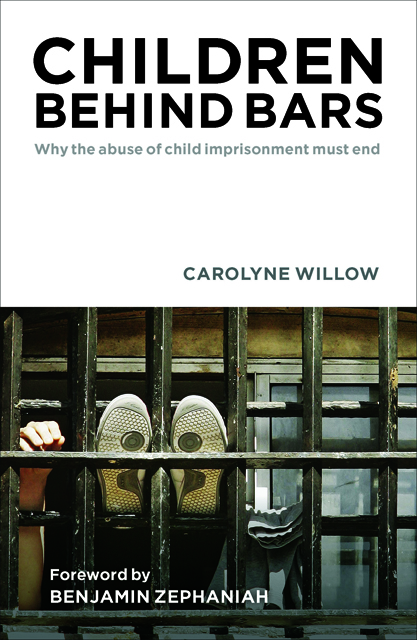Book contents
- Frontmatter
- Contents
- List of tables
- About the author
- Acknowledgements
- Preface
- Foreword by Benjamin Zephaniah
- one Introduction
- two ‘Things were not right at home’
- three ‘They just don’t listen’
- four ‘I think it’s quite like rape’
- five ‘I can’t breathe’
- six ‘What gives them the right to hit a child in the nose?’
- seven ‘We should be able to hug our families’
- eight ‘Every night I’m starving’
- nine Children were ‘given bags to urinate in’
- ten ‘The violence is unbelievable’
- eleven ‘Listen to the kids’
- twelve They shouldn’t be there
- Notes
- Index
- Frontmatter
- Contents
- List of tables
- About the author
- Acknowledgements
- Preface
- Foreword by Benjamin Zephaniah
- one Introduction
- two ‘Things were not right at home’
- three ‘They just don’t listen’
- four ‘I think it’s quite like rape’
- five ‘I can’t breathe’
- six ‘What gives them the right to hit a child in the nose?’
- seven ‘We should be able to hug our families’
- eight ‘Every night I’m starving’
- nine Children were ‘given bags to urinate in’
- ten ‘The violence is unbelievable’
- eleven ‘Listen to the kids’
- twelve They shouldn’t be there
- Notes
- Index
Summary
I became aware at a young age that children could be locked up. Two children living in opposite houses adjoining the entrance to my primary school were incarcerated. One popular teenager, whose father had died, was sent to borstal and we heard rumours that he had to scrub floors with a toothbrush. My mother felt sorry for him and told us we must treat him normally when he returned to the neighbourhood, despite his shaved head. Another child, who sits in the same line as me in our first infant school photograph, killed a psychiatric nurse. We lived on a council estate in South Shields, the northern town famous for being the birthplace of author Catherine Cookson, and for consistently returning a Labour MP since universal suffrage, but two imprisoned children in one cul-de-sac must still have been a record.
The strange world of institutions also struck me early as I had two long spells in a sanatorium on account of being severely asthmatic. I was aged four and five. Families were allowed to visit once a month. Being made to eat cheese pie, because my mother had forgotten to add it to the list of foods I didn’t like, probably sowed the seed for my adult commitment to listening to children.
Then, in adulthood, I was the social worker of a young child who went through the worst of the care system before and after we met. By the time I sat in a courtroom watching him being given a custodial sentence, at the age of 16, we had been through a great deal together – abuse disclosures, foster placement breakdowns, adoption advertising (that led nowhere) and endless trips to a well-known burger outlet. When he was one of the children chosen to go on the stage during a pantomime scene change, we pretended I was his auntie: no child wants to publicly announce they are socialising with their social worker. I read him stories until he fell asleep crying on a camp bed in an emergency foster home, and babysat to try to ease things for other foster carers who still, in the end, ‘sent him back’.
- Type
- Chapter
- Information
- Children behind BarsWhy the Abuse of Child Imprisonment Must End, pp. xii - xviPublisher: Bristol University PressPrint publication year: 2015

